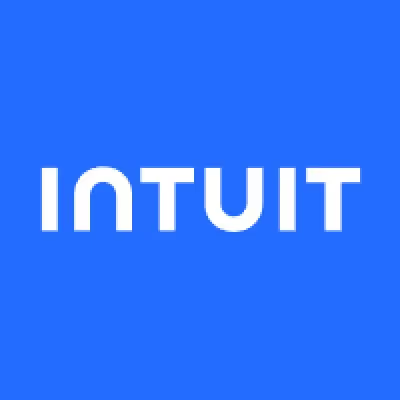
Intuit envisions a world where financial prosperity is accessible to everyone, everywhere. We are building the future of digital finance by transforming complex financial tasks into seamless, intelligent experiences powered by cutting-edge technology and deep customer empathy.
Driven by a mission to power prosperity around the world, we harness the power of AI and cloud innovations to create products that empower individuals, small businesses, and accountants to achieve financial clarity and confidence. Our ecosystem integrates finance, accounting, tax, and marketing automation to unlock new opportunities for our customers.
At Intuit, we are dedicated to reimagining financial management for the modern era, ensuring millions of people can thrive in an ever-evolving economic landscape. Our continuous innovation is aimed at making financial wellness intuitive, accessible, and transformative for all.
Our Review
We've been watching Intuit for years, and honestly, it's one of those companies that makes us scratch our heads in the best possible way. Here's a business that started with a guy watching his wife struggle with a checkbook in 1983, and somehow turned that simple observation into a $15.8 billion financial empire. That's not luck—that's listening.
The Quiet Brilliance of Boring Problems
What strikes us most about Intuit isn't their flashy AI announcements or billion-dollar acquisitions. It's how they've mastered the art of making necessary-but-tedious financial tasks actually manageable. QuickBooks didn't revolutionize accounting—it just made it bearable for small business owners who'd rather focus on their craft than their cash flow.
Their "fall in love with the problem, not the solution" philosophy isn't just corporate speak. We see it in how they've consistently evolved from desktop software to cloud platforms without losing sight of why people use their products in the first place: to get financial stuff done quickly and correctly.
Strategic Moves That Actually Make Sense
The Credit Karma and Mailchimp acquisitions initially raised our eyebrows—why would a tax software company want an email marketing platform? But the more we dig into it, the more we appreciate Intuit's long game. They're building a complete small business ecosystem where your accounting software talks to your marketing tools, and your personal finance data helps you make better credit decisions.
It's ambitious without being reckless, which is refreshing in an industry where companies often chase shiny objects. Intuit seems to acquire companies that solve adjacent problems for their existing customers, not random moonshots.
Where They Excel (And Where They Don't)
Intuit's superpower is taking complex financial processes and making them feel approachable. TurboTax turned tax season from a dreaded annual ritual into something millions of people actually do themselves. That's no small feat when you consider the U.S. tax code.
But we'll be honest—their pricing strategy can sting. As they've transitioned to subscription models, costs have crept up for features that used to be included. It's the classic SaaS trade-off: more features and regular updates, but also recurring payments that add up over time.
Who Should Care
If you're a small business owner, freelancer, or just someone who wants their financial life organized without becoming a spreadsheet wizard, Intuit's ecosystem makes a lot of sense. The integration between their products means less data entry and fewer headaches come tax time.
For larger businesses or those with complex financial needs, you'll probably outgrow what Intuit offers. But for the vast middle market—people and businesses who need robust financial tools without enterprise complexity—they've pretty much nailed the sweet spot.
Feature
Personal finance management (Quicken)
Small business accounting and management (QuickBooks)
Tax preparation software (TurboTax)
Credit monitoring and financial recommendations (Credit Karma)
Email marketing and automation (Mailchimp)








